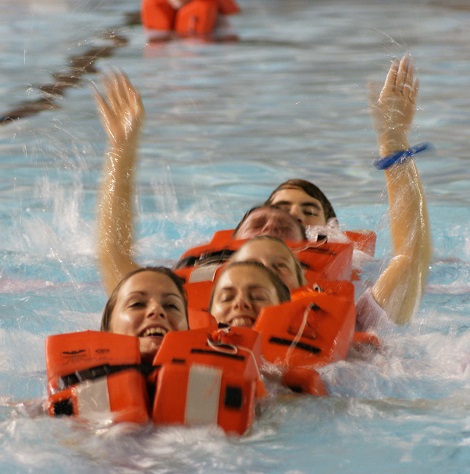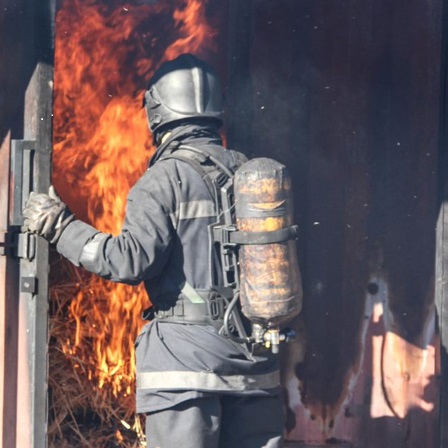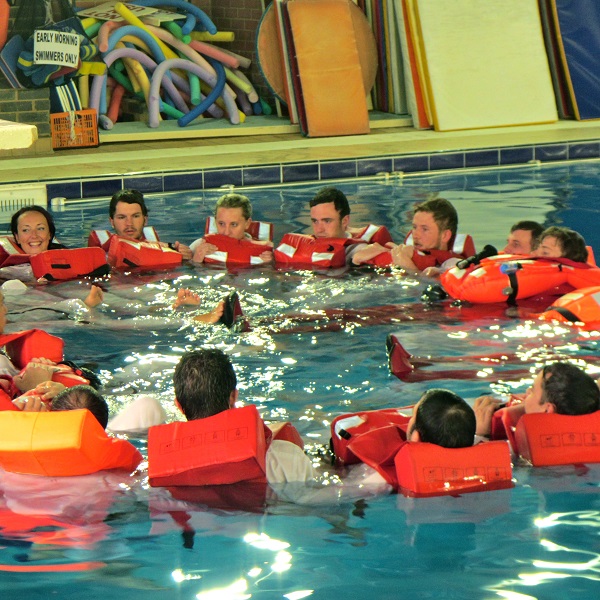STCW Basic Safety Training
STCW Basic Safety Training is required by anyone wishing to work on a commercial vessel greater than 24 m in length. If your aim is to work on superyachts this course is an essential part of your training.
Description

STCW stands for Standards of Training, Certification, and Watchkeeping. STCW was introduced by the International Maritime Organisation (IMO) in 1978 to standardise maritime training across the world.
The STCW code was updated in 1995 and required all crew to receive basic training to cope with emergencies on board. The code was further updated in 2010 to include security awareness training.
MCA training centre
Flying Fish is recognized by the UK Maritime and Coastguard Authority (MCA) to deliver STCW 2010 courses at our training centre in Cowes UK.
We have now been providing STCW training for customers for over 17 years.
Course programme
The STCW Basic Safety week consists of five short courses spread over 6 days.
Personal Survival Techniques - 1 day
This one-day course covers survival suits, hypothermia, life rafts and basic actions in an emergency. It includes a wet drill in the swimming pool where you practise the launch of a liferaft and associated survival skills.
 Elementary First Aid - 1 day
Elementary First Aid - 1 day
Basic, immediate, and emergency response to the most common shipboard injury emergencies, including CPR.
Fire Prevention and Fire Fighting - 2.5 days
Types and classes of fires, prevention, hazard awareness, methods of fire extinguishment, the structure of incident response team, appropriate equipment, personal safety, team support, and live exercises.
Personal Safety and Social Responsibilities (PSSR) - 0.5 days
Types of shipboard emergencies, alarms and signals, initial actions, personal/protective safety equipment, effects of pollution, pollution prevention, safe working practices, enclosed spaces, accident prevention, sexual harassment, individual rights, drug and alcohol awareness, and prevention of abuse.
 Proficiency in Security Awareness - 0.5 days
Proficiency in Security Awareness - 0.5 days
Contributing to maritime security through heightened awareness, recognition of security threats, understanding the need for, and methods of maintaining, security awareness and vigilance.
Where to stay on your course
Our STCW course takes place in Cowes, on the Isle of wight. If you choose our accommodation option, then you will stay in one of our crew houses in Cowes, comfortable and centrally located, only a 2-minute walk to the town and our training centre.
Book your accommodation with us as an optional extra when you book your course. A twin share room in our self-catering accommodation for one week costs A$625
What's included
- All safety equipment, publications, and certification.
- Local transport to and from training locations on the Isle of Wight
Qualifications
- STCW Elementary First Aid
- STCW Personal Survival Techniques
- STCW Elementary Fire Prevention and Fire Fighting
- STCW Personal Safety and Social Responsibilities
- STCW Proficiency in Security Awareness
Before you start
- There are no formal pre-course requirements for this course.
- Fire Fighting and Personal Survival are physically demanding and require a good level of fitness.
- For successful completion, 100% attendance is required and students are expected to actively participate in all elements of the course.
What next?
- Looking for a career in yachting? Check our Yachtmaster Fast Track programme.
- If you want to work as a deck crew on Superyachts you also need an RYA Powerboat Level 2 certificate and a Marine Radio Operator license.